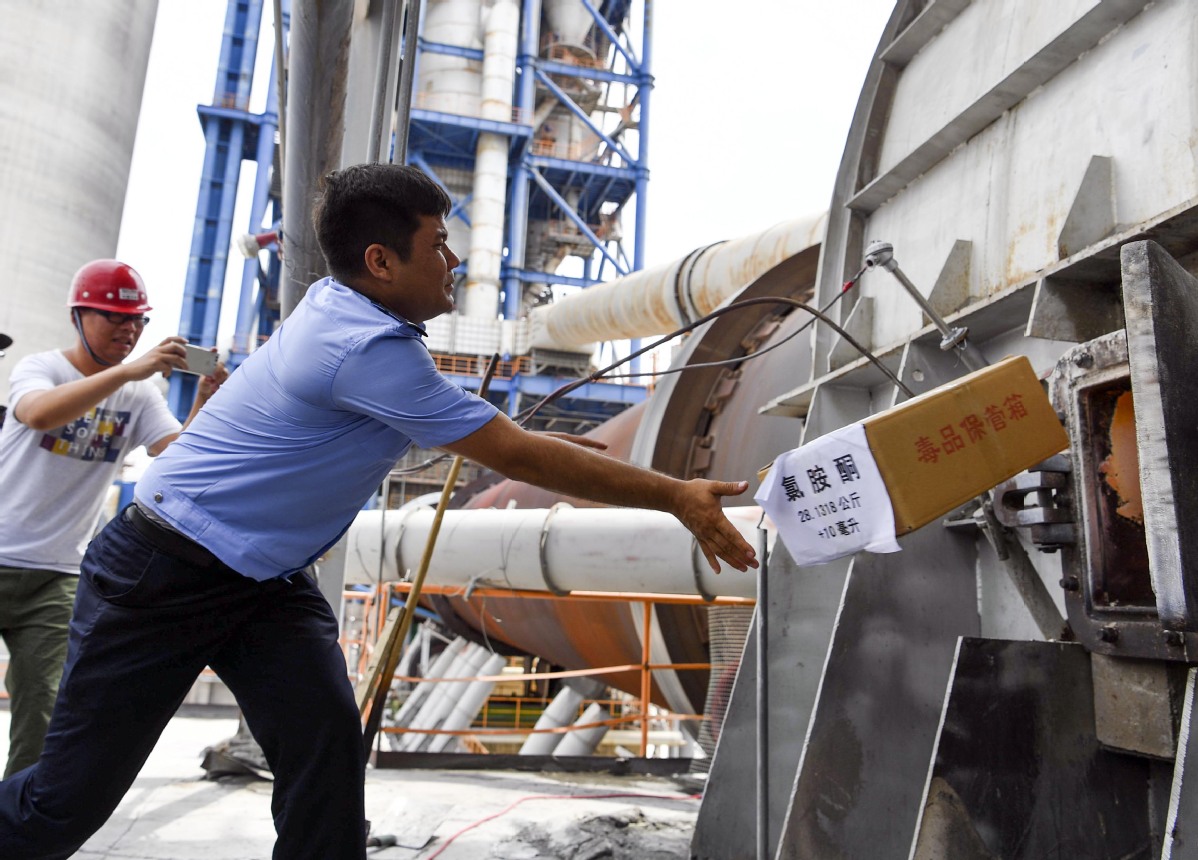Bloc to intensify the war against illegal narcotics


China offers technical training to SCO members to stop traffickers
China has pledged to provide more training and technical support to member nations of the Shanghai Cooperation Organization to tackle cross-border drug trafficking.
Chinese police will offer regular law enforcement programs for SCO members to improve their capabilities in investigating and fighting crime, according to Wei Xiaojun, deputy director of narcotics control for the Ministry of Public Security.
In addition, he said, China will also provide technical and equipment support while working to find alternative crops or sources of income for the region's poppy farmers. Poppy flowers are used to produce opium, a key ingredient in opiates such as morphine, heroin and codeine.
"Drugs lead to many violent crimes, including murder and kidnapping, which seriously threatens regional security and social stability," Wei said. "We take a zero-tolerance attitude toward drugs."
In recent years, narcotics from the world's three major drug-producing areas-the Golden Triangle, comprising parts of Thailand, Laos and Myanmar; the Golden Crescent, which includes parts of Central and South Asia; and South America-h(huán)ave penetrated the borders of China and other SCO members.
Figures from the ministry show more than 80 percent of the heroin and crystal methamphetamine-also known as ice-found in China comes from the Golden Triangle, although authorities saw a noticeable rise in heroin from the Golden Crescent between 2013 and 2017.
Cocaine is also regularly transported to the Chinese mainland by ship or plane before being trafficked to Europe and the United States, according to the ministry.
Since 2012, police across China have handled 860,000 drug-related cases, detained 1.12 million suspects and seized 459 metric tons of narcotics, official figures show.
Law enforcement agents have also helped crack more than 16,000 transnational drug-trafficking cases in the past five years.
Wei said drug crime tends to be complex and sophisticated, and suspects often use fake identities and covert methods to avoid detection. Chinese traffickers also collude with foreign drug runners to operate criminal networks.
The internet has made it easier for traffickers to communicate, he said, while criminals can now find clients online, buy chemicals for the manufacture of narcotics, and place orders to have drugs delivered using international logistics services.
"Even worse, illegal drug manufacturing and trafficking have intertwined with transnational organized crime, the illegal flow of capital, corruption and terrorism, posing a serious threat to regional peace and stability," he added.
Wei said China and other SCO members will take effective measures to reduce the strong demand for drugs as well as enhance cooperation on education and prevention measures to curb the rising number of addicts.

































